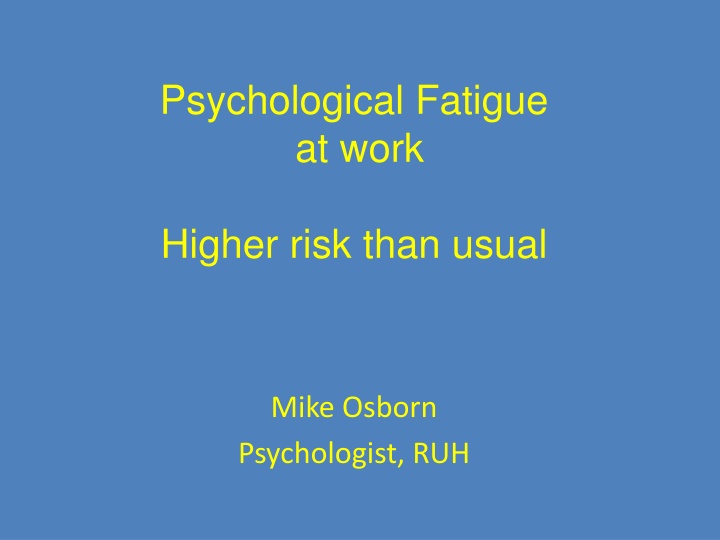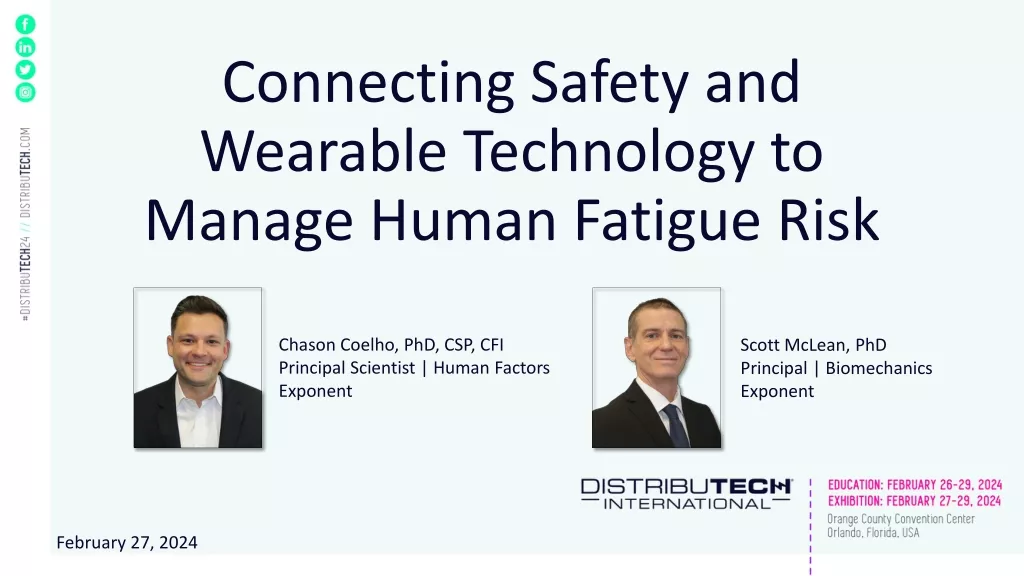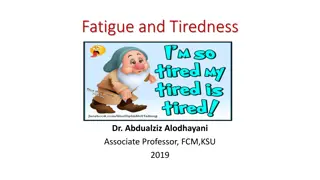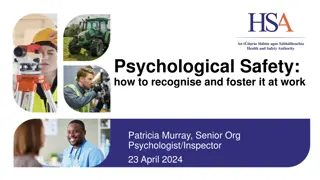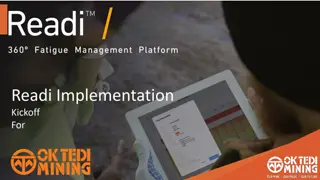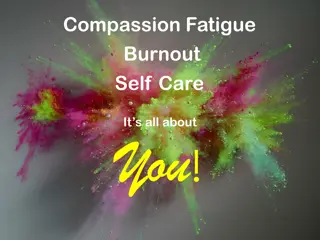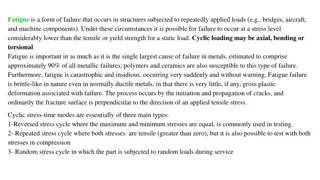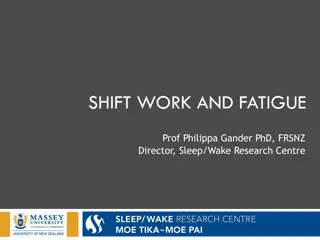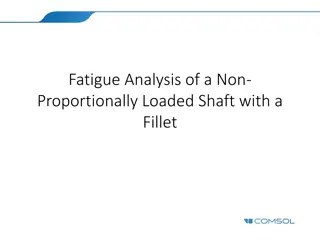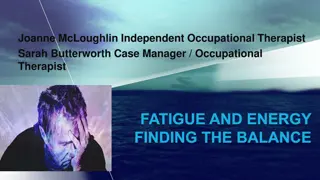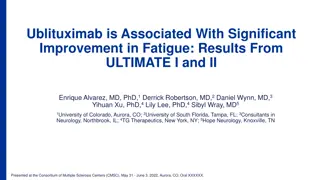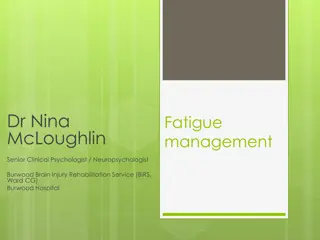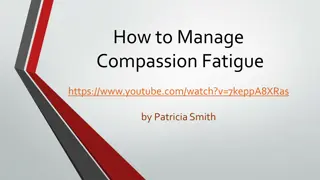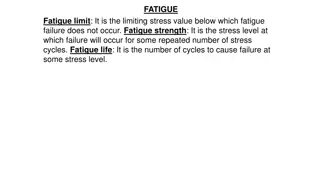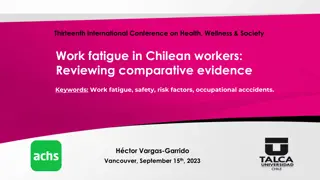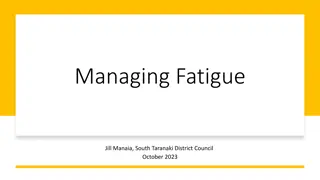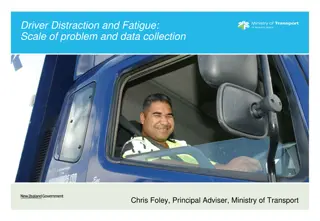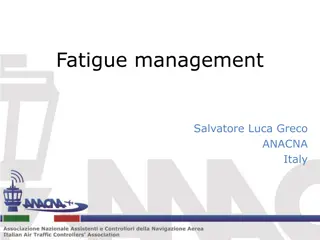Psychological Fatigue at Work: Insights from Mike Osborn, Psychologist
Small behaviors and everyday experiences can significantly impact our health, especially in high-performance work environments like hospitals. Psychological fatigue can lead to cognitive disruption, misplaced guilt, and decreased well-being among staff. It is essential to prioritize self-compassion, seek peace and quiet after work, and cultivate positive relationships to combat fatigue effectively. Mike Osborn, a psychologist, sheds light on the risks associated with prolonged duress and offers insights on managing psychological fatigue at work.
Download Presentation

Please find below an Image/Link to download the presentation.
The content on the website is provided AS IS for your information and personal use only. It may not be sold, licensed, or shared on other websites without obtaining consent from the author.If you encounter any issues during the download, it is possible that the publisher has removed the file from their server.
You are allowed to download the files provided on this website for personal or commercial use, subject to the condition that they are used lawfully. All files are the property of their respective owners.
The content on the website is provided AS IS for your information and personal use only. It may not be sold, licensed, or shared on other websites without obtaining consent from the author.
E N D
Presentation Transcript
Psychological Fatigue at work Higher risk than usual Mike Osborn Psychologist, RUH
Small behaviours and brief experiences that happen everyday have a critical impact on our health
Prolonged duress = Fatigue Threat defences dominate do not stand down when leave work
Hospital staff are used to high performance work over long periods of time Fatigue is not a stereotypical presentation
Less anxious More annoyed and tired
Cognitive disruption Decision making, working memory, attention, word finding, confidence motivation, All thinking and learning disrupted
Misplaced Guilt Tired of apologising and feeling that patients have been let down Frustrated
What can we do? What if it s not you? You re not doing anything wrong? What do you need?
Little things for big reasons Got to do compassionate things. Regularly
If you crave peace and quiet, you need peace and quiet Quiet reunions after work Be picky about your friends
Benign self-compassion Prioritise composure and civility
Doesnt matter why ANGRY PEOPLE DO WORSE ANGRY PEOPLE DON T LOOK AFTER THEMSELVES
Strike when the iron is cold
Please dont reduce fatigue management to a test of will power, control or strength it is a test of flexibility
Person Spec. virtues Resilience Huge capacity for work Diligent, conscientious, vocational Prone to over-thinking and self-criticism Compassionate, strong moral compass
Fatigue risk factors Resilience Huge capacity for work Diligent, conscientious, vocational Prone to over-thinking and self-criticism Compassionate, strong moral compass
Social Safety Immune cells love social safety Team culture is our most protective factor Call out incivility makes a bad situation worse, every time.
Context Not what have I done wrong? But what do I need? What would a compassionate colleague prescribe?
